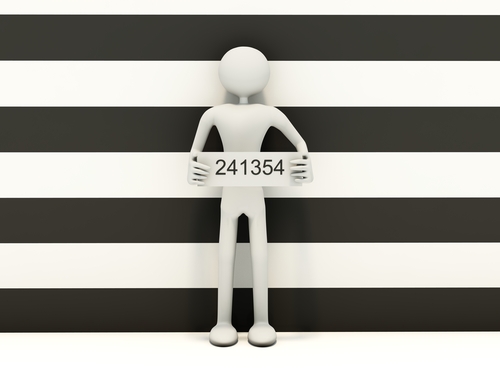Who can forget the image of Jared Lee Loughner that was splashed across the front page of countless newspapers across the country after he shot 20 people, including then-Congresswoman Gabrielle Giffords, in Tucson in January 2011? The image was from a booking photo, similar to what is commonly referred to as a “mugshot.” While the Pima County Sheriff’s Office widely distributed the photo after Loughner was arrested, it likely would have been available via the Arizona Public Records Law, which contains no specific exemption for mugshots.
It’s not so clear whether you would be able to get a similar photo from the United States Marshals’ Service (USMS), which handles federal mugshots. That’s because the USMS recently changed its policy regarding disclosure of federal mugshots pursuant to a Freedom of Information Act (FOIA) request.
There’s a bit of a convoluted history to this issue, but it can be boiled down to just a few sentences. Three United States Courts of Appeal have ruled on whether the USMS is required under FOIA to provide federal mugshots. The 11th Circuit (covering Alabama, Florida and Georgia) and the 10th Circuit (covering Oklahoma, Kansas, New Mexico, Colorado, Wyoming, and Utah, plus those portions of the Yellowstone National Park extending into Montana and Idaho) have ruled that disclosure of these mugshots constitutes an unwarranted invasion of the subject’s personal privacy. However, the 6th Circuit (covering Kentucky, Michigan, Ohio and Tennessee) has said no such privacy rights are implicated.
As a result, the USMS honored FOIA requests seeking mugshots that were filed from within the states of the 6th Circuit because that was the law of the land, so to speak. From the requester’s perspective, the situation wasn’t perfect, but it worked: if you needed a mugshot, you either called a friend in one of those states or hired a stringer or freelancer to make the request for you.
However, in a brief filed in December 2011 with the Supreme Court (in response to a petition for certiorari by the requester in the 11th Circuit case asking the Supreme Court to overturn that Court of Appeals decision), the government indicated a shift in its position, stating for the first time that it wasn’t so sure it would even honor the 6th Circuit’s decision and would not fulfill FOIA requests for mugshots that were filed from those states — a true reversal of position. Many media groups immediately sought clarification from the Obama Administration about this statement but the government did not respond.
In December 2012, the USMS formally announced a change in policy: it would no longer grant FOIA requests for mugshots, no matter where the request was filed. The only way that federal mugshots would be released was if the release served law enforcement purposes.
On January 30, 2013, AAN joined 36 other organizations on a letter (PDF) to Attorney General Eric Holder, asking him to overrule the USMS and restore full FOIA access to federal mugshots. As the Reporters Committee summarizes on its website, the USMS policy reversal is unwarranted “as it violates established case law in the United States Court of Appeals for the Sixth Circuit that entitles individuals to obtain mug shots under FOIA for indicted defendants who have made a public court appearance and whose criminal proceeding is ongoing.”
You can read more about the letter or the history of this matter on the Reporters Committee for Freedom of the Press website.
Kevin M. Goldberg is an attorney with Fletcher, Heald & Hildreth and serves as AAN’s legal counsel.

